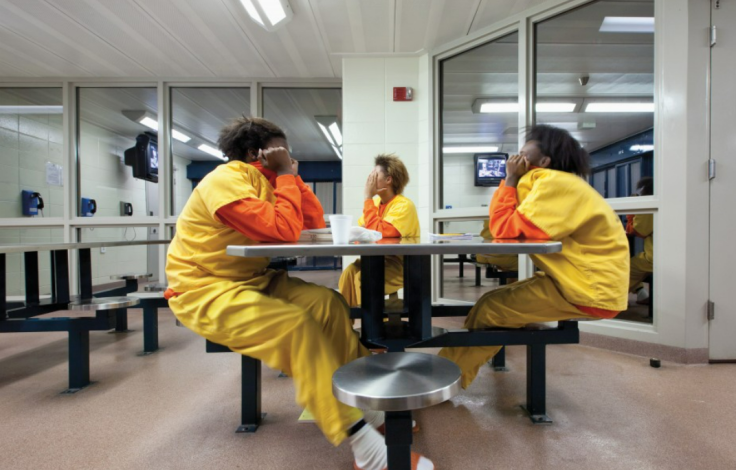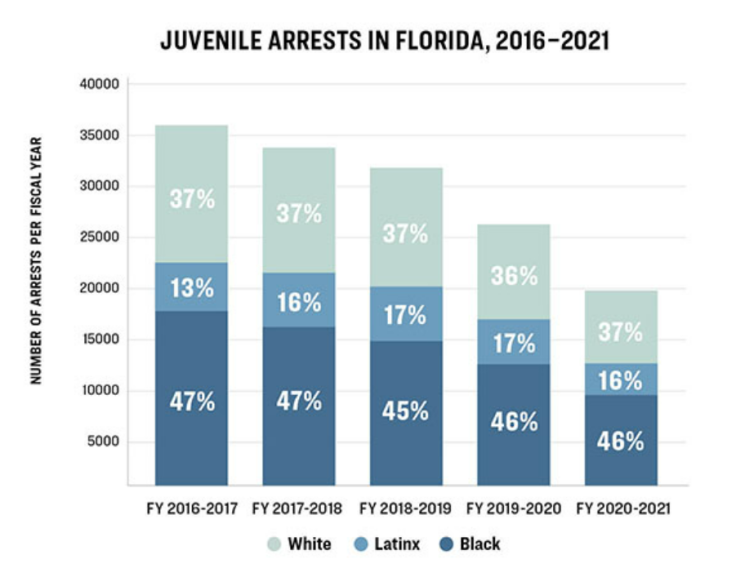
SEATTLE - In 1978, the state of Florida became one of the first states to allow for juveniles to be prosecuted in the adult criminal justice system. Fast forward more than four decades, "The Sunshine State" is one of 13 states across the country that gives prosecutors the power to try juveniles and children as adults without getting sign-off from a judge.
A 2022 report by the Southern Poverty Law Center found that no state has prosecuted children as adults on felony charges as much as Florida has in the last five years, where 4,446 children have been charged with felonies in the adult system. And according to a Miami Herald investigation, when judges determine the penalties for those underage offenders, they give them higher sentences on average for felony crimes than older offenders.
Judges in the state of Florida have the option to give teenage offenders "juvenile sanctions," which sends them to a juvenile facility rather than prison, or classify them as "youthful offenders," resulting in either probation or being confined at a camp with other convicted young adults for up to six years.
According to Lynn Tepper, a former family court judge in Florida's Sixth Judicial Circuit said that the Herald's findings were "very, very disturbing" and argued that punishing children with prison time only increases their likelihood of becoming repeat offenders. "If your purpose is accountability then there are other ways to do it," she said. "It doesn't have to be like this."
Only one in 10 of more than 20,000 children tried as adults in the state of Florida were given juvenile sanctions and less than 5% of them received a "youthful offender" designation over the last 15 years of state court system sentencing data from 2008 to 2022, according to the Herald.
On average, children tried as adults were sentenced to a little more than three years in prison for third-degree felonies, around 50% longer than the average sentence given to adults for the same class of offense. Most of the felony charges were third-degree offenses, the lowest class of felony crimes which include burglary, some types of assault, drug possession and certain DUI offenses.
During Fiscal Year 2020-21, 19,086 juveniles were arrested statewide, but the number of direct file cases among Black teens was disproportionate to the overall juvenile arrests. Out of the more than 19,000 juveniles arrested, 46% of them were Black, yet they comprised 61% of the cases transferred to adult courts. "The racial disparities in direct file cases are still real and significant, so that is a real problem," said Scott McCoy, a deputy legal director for the Southern Poverty Law Center who oversaw the investigation for several years.

Apart from Florida, Alaska, Delaware, Hawaii, Idaho, Maine, Maryland, Michigan, Pennsylvania, Rhode Island, South Carolina, Tennessee, and West Virginia are other states that have no minimum age for the adult prosecution of children.
In Florida, any person arrested for a criminal offense who is under the age of 18 is considered a juvenile. However, even juvenile offenses can be transferred to adult court. Any felony offense allegedly committed by a 16 or 17 year old person can be transferred to adult court, including those younger can be charged in adult court for certain offenses such as grand theft auto, robbery, aggravated battery or possession of a weapon on school grounds.
© 2024 Latin Times. All rights reserved. Do not reproduce without permission.







